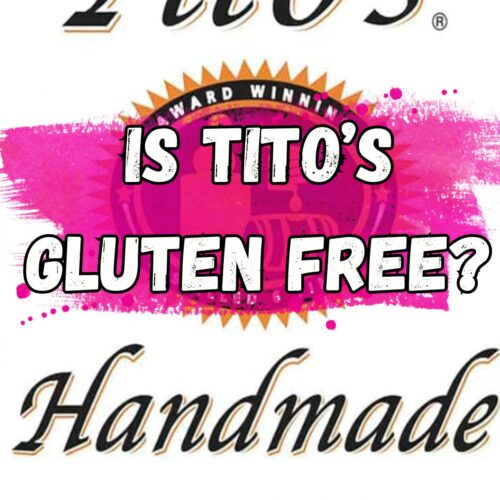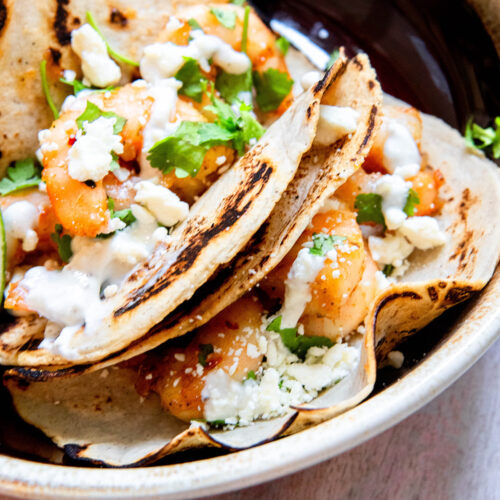Ever wondered “What gluten free beer brands are there?” or “Which gluten free beer brands” or the best. In this post, we dig into the list so you’ll never have to go without your favorite alcoholic beverage again.

What is Celiac Disease or a Gluten Intolerance?
Celiac disease and gluten intolerance are two distinct conditions related to the body’s reaction to gluten, a protein found in wheat, barley, rye, and some other grains. Here’s an overview of each condition:
Celiac Disease: Celiac disease is an autoimmune disorder in which the immune system reacts to gluten, damaging the lining of the small intestine. This reaction occurs due to an abnormal immune response, and it can lead to various symptoms and long-term health complications. Some common symptoms of celiac disease include digestive issues (such as abdominal pain, bloating, diarrhea), fatigue, weight loss, skin rashes, and nutrient deficiencies. The only treatment for celiac disease is a strict, lifelong gluten-free diet, as consuming gluten triggers the immune response and intestinal damage.
Gluten Intolerance (Non-Celiac Gluten Sensitivity): Gluten intolerance, also known as non-celiac gluten sensitivity, refers to a condition where individuals experience symptoms similar to those of celiac disease when consuming gluten. However, unlike celiac disease, gluten intolerance does not involve an autoimmune response or damage to the small intestine. Symptoms can include digestive problems, such as bloating, gas, diarrhea, as well as fatigue, headaches, and brain fog. The exact cause of gluten intolerance is still not fully understood, and there are no specific diagnostic tests for it. The primary treatment is to follow a gluten-free diet to alleviate symptoms
It’s important to note that celiac disease and gluten intolerance are different conditions, although they share some similar symptoms. If you suspect you may have either condition, it’s recommended to consult with a healthcare professional for proper diagnosis and guidance on managing your dietary needs.
What are gluten-reduced beers and gluten-removed beers?
Gluten-reduced beer and gluten-removed beer are two categories of beer that are marketed as having reduced gluten content. Here’s an overview of each:
Gluten-Reduced Beer: Gluten-reduced beers are brewed using traditional ingredients that contain gluten, such as barley, wheat, or rye. However, additional steps are taken during the brewing process to reduce the gluten content. These steps may include using enzymes or specific brewing techniques that break down gluten proteins to smaller fragments. The aim is to lower the gluten levels to a point where they may be tolerated by some individuals with gluten sensitivity or intolerance. It’s important to note that gluten-reduced beers still contain some level of gluten and are not suitable for individuals with celiac disease.
Gluten-Removed Beer: Gluten-removed beers, also known as “deglutenized” beers, are brewed using traditional ingredients that contain gluten. However, after the brewing process, an additional step is taken to remove or reduce the gluten to a level that meets the regulatory standards for gluten-free products. This step often involves using enzymes or filtration methods to break down or remove the gluten proteins. The resulting beer is tested to ensure it meets the gluten-free threshold defined by the relevant regulatory authorities. It’s important to note that gluten-removed beers should be produced by breweries that follow strict protocols and testing procedures to ensure the gluten content is within the designated limits for gluten-free products.
While gluten-reduced and gluten-removed beers can offer options for individuals with gluten sensitivity or intolerance, they may not be suitable for those with celiac disease. If you have celiac disease or a severe gluten allergy, it’s best to consult with a healthcare professional and look for beers that are certified gluten-free to ensure they meet your dietary needs.
Is regular beer and traditional beer gluten free?
No, regular beers and traditional beers are not typically gluten-free. Most traditional beers are brewed using ingredients that contain gluten, such as barley, wheat, or rye. Gluten is a protein found in these grains, and it plays a significant role in the brewing process, contributing to the flavor, texture, and fermentation of the beer.
During the brewing process, gluten can be partially broken down, but it is generally not completely removed. This means that regular beers and traditional beers contain varying levels of gluten, making them unsuitable for individuals with celiac disease or gluten intolerance.
However, there are now gluten-free beer options available on the market. These beers are brewed using alternative grains that are naturally gluten-free, such as sorghum, millet, rice, or corn. They are specifically made to be gluten-free and are safe for individuals with celiac disease or gluten intolerance to consume.
It’s important to read the labels and product descriptions carefully to determine if a beer is gluten-free. Look for beers that are specifically labeled as “gluten-free” or have certifications from trusted organizations that verify their gluten-free status. This ensures that the beer has been tested and meets the required standards for gluten-free products.
List of Gluten Free Beers
Here is a list of the best gluten-free beers (most would be available in the United States, be sure to check depending on your location) that may be available at your local liquor stores. This list will help either you or the beer lovers in your life.
- Omission Brewing Co.: IPAs, Lagers, Ales, etc.
- Glutenberg: Stout, IPA, Blondes, Ales, etc.
- Green’s Gluten-Free Beers: Lagers and Ales
- Ghostfish Brewing Company: IPAs, Lagers, Ales
- Estrella Damm Daura: Daura, Daura Marzen and Daura Shandy
- Stone Delicious IPA: IPA
- Redbridge: Lager
- Two Brothers Prairie Path: IPAs and more
- Ground Breaker Brewing: PAs, Lagers, Ales, etc
- Moonshrimp Brewing: IPA and Ales
- Bards Beer: Sorghum Malt Beer
- Holidaily Brewing Company: IPA, Stout, Ales, etc
- Wold Top Against the Grain: Pale Ale
- Duck Foot Brewing Co.: IPAs and Ales
- Aurochs Brewing Company: Ales, Lagers, Porters, IPAs, etc
what gluten free beer brands have craft beers?
One example of a craft beer that is gluten-free is “Glutenberg.” Glutenberg is a Canadian brewery that specializes in brewing gluten-free craft beers. They offer a variety of styles, including:
- Glutenberg Blonde: A light and crisp gluten-free ale with notes of citrus and honey.
- Glutenberg American Pale Ale: A hop-forward gluten-free beer with floral and citrus flavors.
- Glutenberg IPA: A bold and flavorful gluten-free India Pale Ale with a balanced hop profile.
- Glutenberg Red Ale: A rich and malty gluten-free beer with hints of caramel and toasted bread.
- Glutenberg White: A refreshing gluten-free Belgian-style wheat beer with citrus and spice notes.
Glutenberg is known for its commitment to brewing high-quality gluten-free beers using alternative grains, such as millet, buckwheat, and quinoa. Their beers have received recognition and praise for their taste and craftsmanship, making them a popular choice among those seeking gluten-free craft beer options.
It’s important to note that availability may vary depending on your location. However, Glutenberg has expanded its distribution in recent years, and their beers can often be found in specialty beer stores or online retailers that cater to gluten-free products.
What does PPM mean and what is “ppm gluten” or “ppm of gluten”?
PPM stands for “parts per million,” and it is a unit of measurement used to indicate the concentration or amount of a substance in a solution or mixture. In the context of gluten, PPM gluten refers to the amount of gluten present in a food or beverage, typically measured in parts per million.
In the case of gluten-free products, including gluten-free food items or beers, the PPM gluten measurement is used to determine if the product meets the regulatory standards for gluten-free labeling. In many countries, including the United States, European Union, and Canada, the maximum allowed threshold for a product to be labeled as “gluten-free” is typically 20 parts per million or less.
This means that gluten-free products are required to have gluten levels below 20 PPM to be considered safe for individuals with celiac disease or gluten intolerance. Products with higher gluten content may be labeled as “low gluten” or “contains gluten.”
Some gluten free beer brands may mention PPM on their labels. Keep an eye out for this.
It’s important to note that even though gluten levels below 20 PPM are considered safe for most people with gluten-related disorders, some individuals with extreme sensitivity to gluten may still experience symptoms from trace amounts. It’s always advisable to read product labels, look for certified gluten-free symbols, and consult with healthcare professionals if you have specific dietary concerns or restrictions.
Final Takeaways on Gluten Free Beer Brands
There are a lot of gluten-free beers on the market these days. There are also more dedicated gluten-free breweries that are popping up. Gluten-free grains, have led to the inventions of drinks such as sorghum beers (an example is redbridge gluten-free sorghum beer), brown rice, etc. It is important to remember when looking for great gluten-free beers that you need to avoid traditional ingredients. You want the final product to be 0 ppm of gluten, or do not accept someone saying “there isn’t too much gluten” in this beer. Avoid any gluten grain (such as barley malt, wheat, most cereal grains). If you are wanting to discover new gluten free recipes, you can always join a gluten intolerance group or a celiac recipe group. They can help guide you to your first gluten-free beer, that is, if you don’t find one that you love from the list above.
When checking at your local stores or grocery stores, they will likely have popular options but be sure to look for truly gluten-free beer. You want to avoid gluten ingredients (and gluten protein). If you are purchasing gluten free beer for someone else, remember to take their gluten sensitivities into account and remember that while the fermentation process may say that it removes all the gluten, just buy a beer that is labelled 100% gluten free and you know is safe for them. They will thank you later and give you a gold medal for friendship.
LEAVE A RATING AND REVIEW!
Did you find this helpful? If you did, let me know! And let others know too by leaving a comment and star rating. Reviews are incredibly useful in helping other people find my site and make my recipes. Thank you so much!
Laura





Leave a Reply